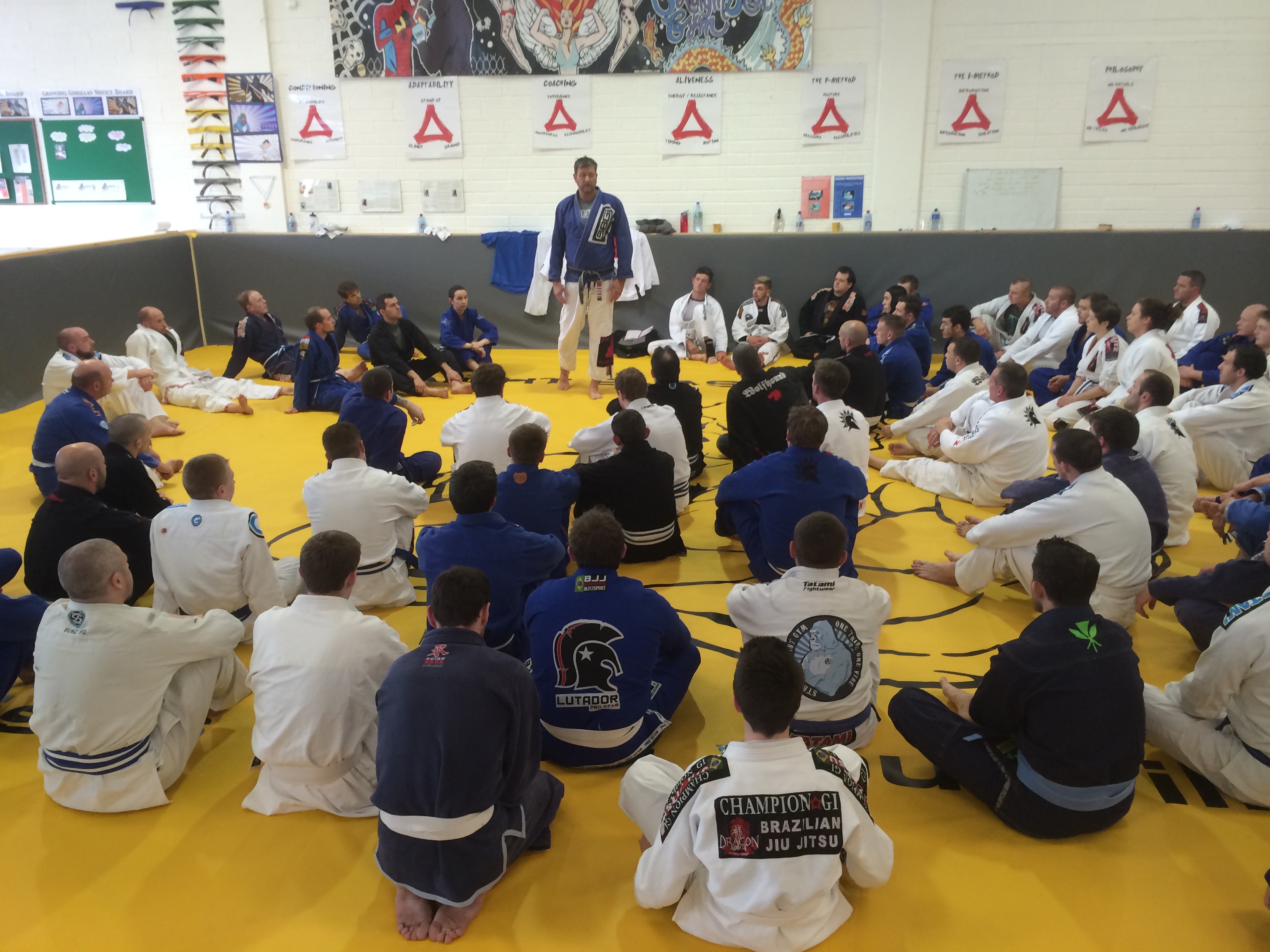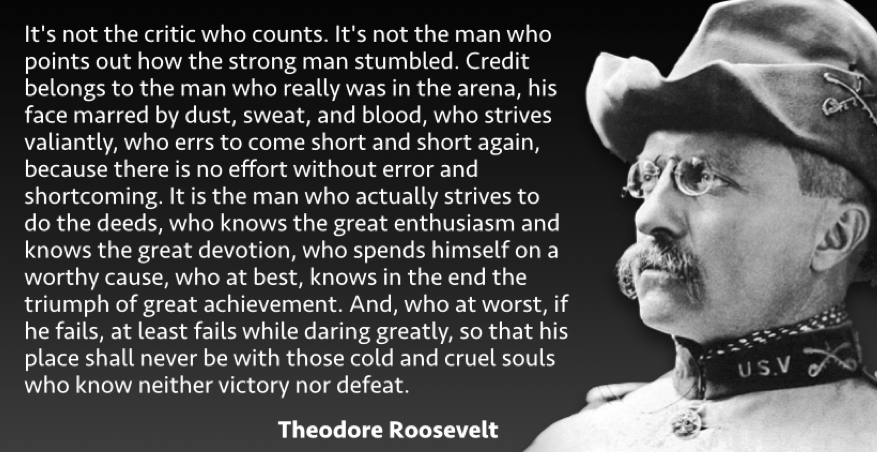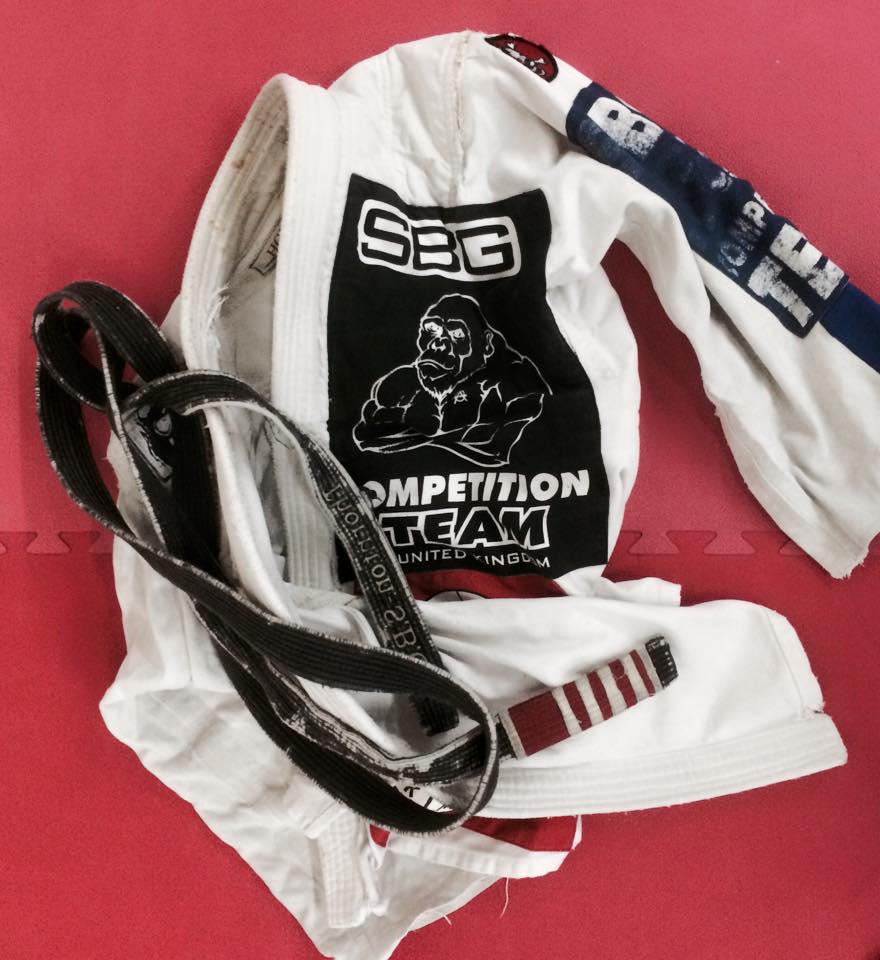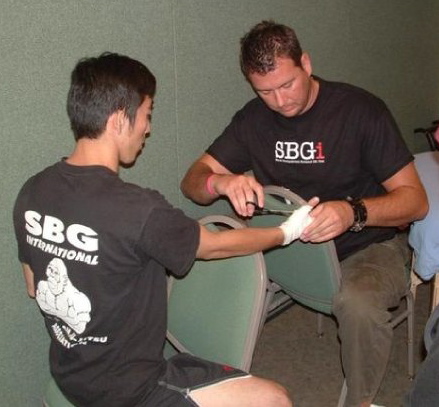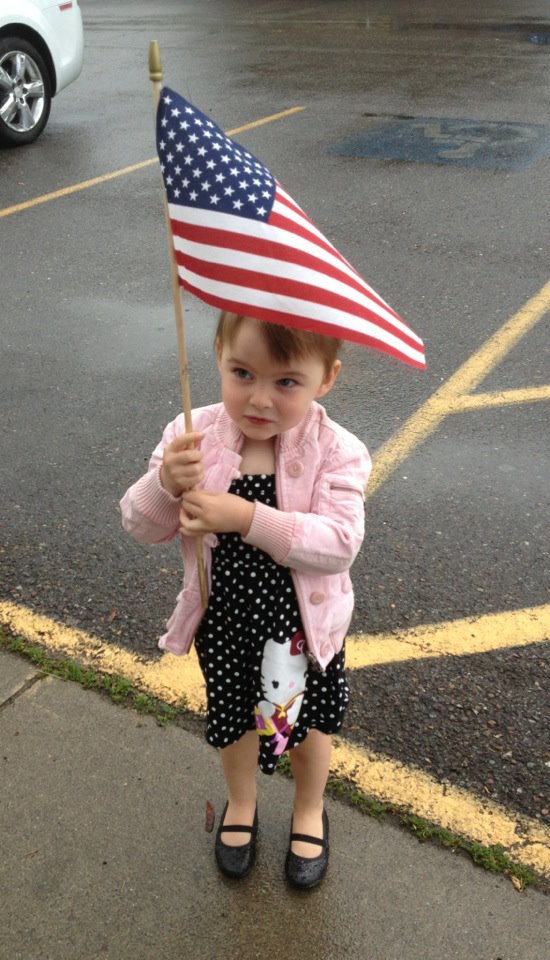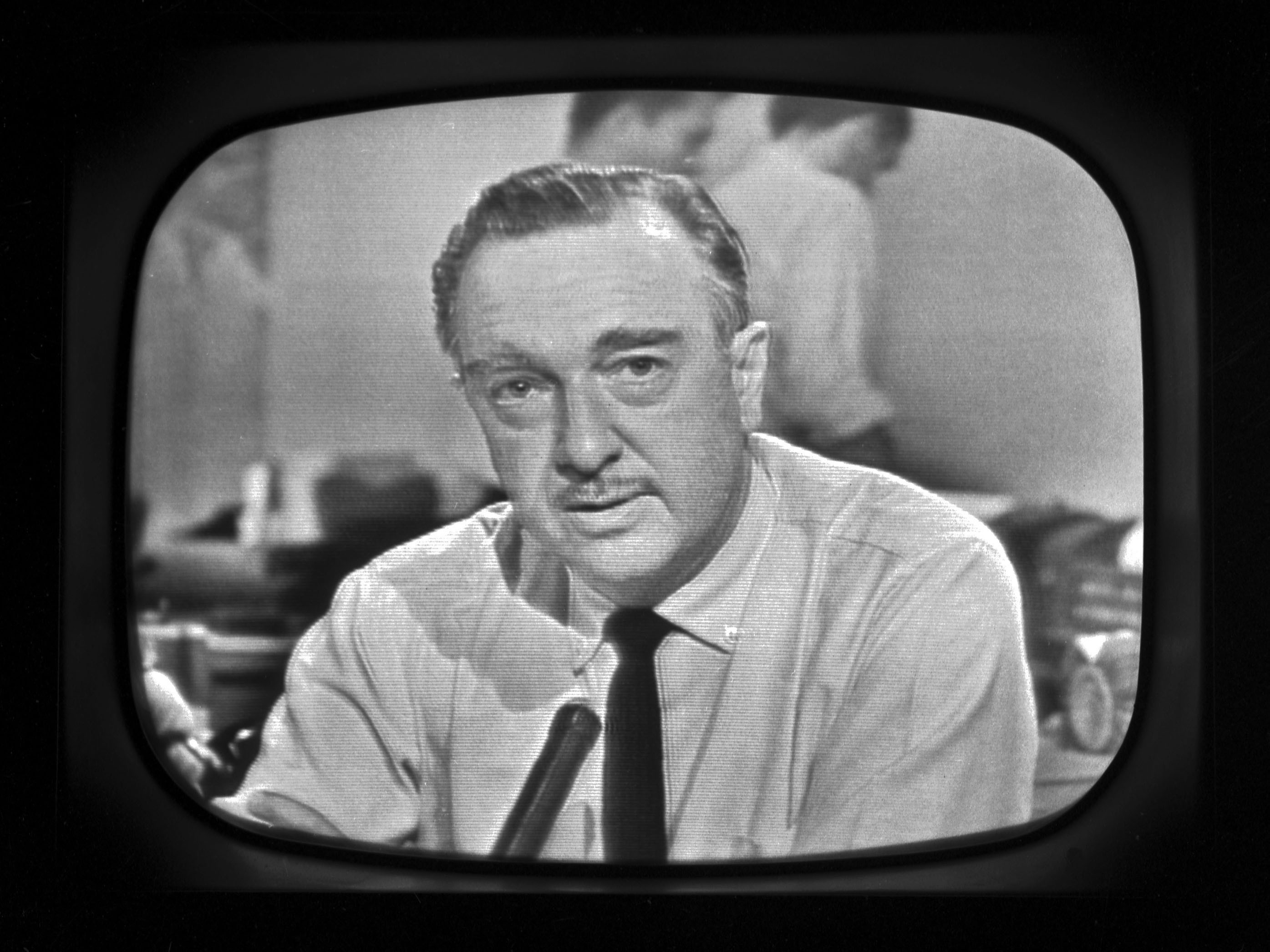At the last SBG camp, Oct 2016 in Berkeley California, we ended with a question and answer section for all the coaches on the roster. The last question we took was from a white belt that had signed up for camp after just a few weeks of training.
He asked, “what advice would you offer to people just starting their training?”
That’s a good question, and sitting up front were nine coaches, with a combined experience of about 185 years – who offered good answers.
“It’s a long journey. Don’t be in a rush.”
“Trust your coaches and trust the process.”
“Relax, and care about learning more than winning.”
“Don’t get to wrapped up in volume of hours too early – just don’t ever quit.”
“Be reflective, and understand that what we do makes humans better people.”
“Trust the technique, it isn’t whether you escaped, but whether you escaped technically that matters.”
“Don’t be a fighter, be a Martial Artist – or for a time, a Martial Artist who fights. One has a limited life span. The other is for life.
“Give 60% of your energy to making your training partner better and 40% to making yourself better, and you’ll always get more than if you focused on yourself.”
These were all answers as solid as steel. But one answer in particular hinted at something that takes many of us longer to realize – something we recognize with greater clarity as we mature. It came from Chris Conolley, head coach for SBG Alabama:
“Make relationships in your academy. Make friends. Be part of the community.”
We are social primates. We need contact. We need socialization. We need connection. Our growth, our happiness, our very wellbeing, is in so many ways connected to the communities we move within.
Occasionally you’ll run into someone who denies this very human requirement, but in nearly every case, a very gentle scratching of the surface reveals levels of hypocrisy, and or immaturity, that helps to explain that confusion. As my coach Chris Haueter has said, it’s always the guys who claim they don’t care about belts that want the belts the most. Likewise, the folks who deny the need for community tend to be those who need one the most.
Our long-standing institutions, religions, mutual aid societies, and clubs, have long understood this. Whether it was through conscious design, or more likely, enhanced replication due to the tribal feature, we as humans have always had communities.
Once this point is fully understood the question becomes, how do I find a healthy community?
There a few guidelines we can use:
#1 it provides mutual aid and benefit.
Do you benefit from belonging? Are there physical, emotional, or intellectual things you consistently get back from membership? Do you find yourself feeling compelled to give back? Does the tribe make you a better person?
#2 it fosters strength through challenge and individual responsibility through accountability.
Without accountability there are no standards. Without standards, there is nothing to strive for.
Occasionally you’ll get a high level competitor that switches teams. If the coach/athlete relationship is off, sometimes that’s the right thing. However, I rarely see anyone who jumps from school to school develop a really solid BJJ game. It takes long-term training partners and community for that. And the guys who jump ship because someone offers them an easier belt (lower standards) always do themselves a disservice. All truly valuable, long-term relationships, can be hard on occasion, and require tending and care. Including the long-term relationship between student and teacher, athlete and coach – which in BJJ, white to black, is usually at least a decade. But, there are also really meaningful benefits and lessons those relationships offer. Benefits the folks who hop from team to team will never know.
We become stronger through struggle. Struggle requires the willingness to be vulnerable. A healthy community will be a place where you are allowed to fail. Where you are tested. Where it is understood that losing is not just okay, it is an essential part of the process. Because there is no maturing, no thriving, absent worthy effort. And any task that’s made failure proof is at the same time made unworthy.
I am reminded of President Theodore Roosevelt’s famous quote.
#3 it is a meritocracy.
As I often remind students before an ironman, Jiu-Jitsu belts are only meaningful because they are symbolic of a testable, measurable, fake proof skill-set. Like playing the piano, speaking Mandarin, or being able to swim, you can’t pretend to be good at Jiu-Jitsu and get away with it.
That ability is hard earned. It requires failure after failure, tap after tap. If you don’t lose, a lot, you’ll never learn to win against better and better players. Jiu-Jitsu is a perfect meritocracy that way. And a great Jiu-Jitsu community will also be such a meritocracy. On the mat you’ll have men and women, rich and poor, student and teacher, construction worker and attorney, soldier and doctor, first responder and merchant, police officer and stay at home mom – everyone training together, learning together, growing together – rolling together.
The tribe’s hierarchy will also be a natural reflection of that.
Those men and women in positions of leadership won’t be there because they collect more certificates, shook the right hands, or paid the most money – they’ll be there because they earned it – through hard work in the arts and sciences the tribe practices.
#4 it’s leadership will understand that leadership means service.
If the top echelon of the tribe is demanding you give over your cars, sex, dignity, or critical thinking skills, that’s not a healthy community – it’s a cult. The late Bhagvan Shri Rashnesh, also known by his hippie-dippy pen name, “Osho” (whose works are sold everywhere that the trite and banal is pedaled to the soft and credulous), was the perfect example of what not to be.
Every true leader, unlike “Osho”, knows that leadership is service and service is leadership. The teachers and coaches are there to serve the students – not the other way around.
In Jiu-Jitsu decades are spent learning the craft. And after much effort and struggle, the coach ends up spending their energy trying to make every student they have better than they themselves were. That is what it means to be a good leader. A strong parent wants their child to go farther than they did. A strong teacher wants their students to do the same.
#5 A healthy Tribe is a family orientated Tribe.
Look around the room. Do you see entire families present? Do the husbands, wives, and children all join in? Is everyone welcome?
Or rather – is it a room full of men?
When I started teaching I had a room full of men. Not just any men, but rather, tough men; men who could survive the training process, or better stated, put up with it.
As time went by more women signed up. The kids needed a place to train. The wives were curious what their husbands were spending so many hours doing, and over years, we developed a Tribe that was in every sense of the word – family orientated.Watch movie online The Transporter Refueled (2015)
Not only do I think that is good thing, I actually think that, if what you’re doing is healthy, it is an inevitable thing.
It may not start that way. Every community starts with a core group. But if the tribe meets all the criteria listed above, if it provides benefit to all its members, if it fosters strength through challenge and personal responsibility through accountability, if it is a meritocracy, and if it’s membership understands that leadership means service – then by definition, it’s natural trajectory will be towards something family orientated. Why? Because as more individual members spend more time with the community, and find more value in being involved with the community, they will want those they love most to also be involved, and those they love most will want to belong too.
A mature male teacher can help teach young students how to be polite, how to shake hands, how to look someone in the eyes and say “yes, sir”, or “no, ma’am” – and other appropriate response knowledge that can be priceless in terms of future success in life; especially when some of the kids come from homes where no strong and positive male role model exists. And study after study has confirmed just how important that influence is. Few things disgust, or anger me more, than the mocking of the vital “male” influence in a young person’s life.
Likewise, if the room is filled with only men, a massive gap will be left within the Tribe. There is a level of attention to detail, intelligence, and relationship, that requires the influence of strong women.
The hubris required to mistakenly believe that either gender is unnecessary within a healthy community of humans is large enough to be considered grotesque – and a mature association wont make that error.
Just as children need community, so too with adults; a healthy Tribe contains stable, mature, intelligent, strong men and women who hold each other to a certain standard of behavior. That grows character.
You can learn a lot about a lot of things, when you’ve spent decades working on any art form. But if you don’t have a community to share it with, a Tribe to pass it on to, then you will miss half the beauty involved in the process.
When we were thinking about how to launch our new SBG video podcast series, we had dozens of first episode ideas. But it was clear to me from the start that the natural place to begin, was with the topic that’s most important of all – the topic coach Conolley nailed at the 2016 Fall Camp – Tribe.
This is ours:

